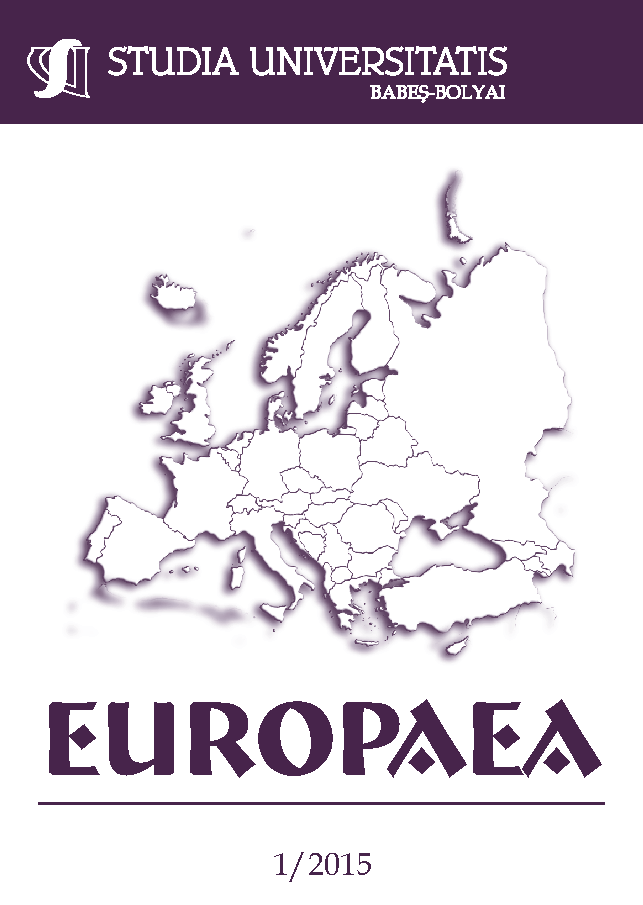MARKET AND STATE POWER IN CONTEMPORARY CHINA. IS THERE A NEOLIBERAL SHIFT IN THE POST-MAO ERA?
Keywords:
China after Deng, economic liberalization, guanxi, ideology, Legalism, market socialism, neoliberalismAbstract
The aim of the present paper is to question the so-called neoliberal shift of the post-Mao era, apparently dominated by its the core principles: the liberalization of the market, decentralization and reduction of state power. Since the reform period of Deng Xiaoping, a new form of governance has occurred, generating at least two new phenomena: (1) the transfer of power of former local and central Party officials into the new economical sector (resulting in a new and powerful social class), (2) the increase of income inequality and the pauperization of some formally stable working classes. Although the Chinese political elites still show commitment to socialist values and the firm way of control, they achieved the aim of developing a richer state through market-driven principles, but paying the high cost of social conflicts. In addition, the new hybrid governance still uses traditional trustful personalistic ties (gunaxi) in business and public sector, as well as authoritarian methods to achieve its normative goals: a wealthier and more equal society. Thus, the claim of a neoliberal makeup of China will be contested.
References
Arrighi, Giovanni (2007), Adam Smith in Beijing. Lineages of the Twenty-First Century, London: Verso.
Breslin, Shaun (2006), “Serving the Market or Serving the Party: Neo-liberalism in China” in Robison, R. (ed.), The Neo-liberal Revolution: Forging the Market State, New York: Palgrave Macmillan, 114-34.
Brødsgaard, Kjeld Erik; Zheng, Yongnian (2006), The Chinese Communist Party in Reform, London: Routledge.
Chen, Zhiwu (2008), “Privatisation Would Enrich China” in FT.com, [http://search.proquest.com/docview/229107279?accountid=15533], 29 Novembeer 2014.
Clarke, John (2004), Changing Welfare, Changing States: New Directions in Social Policy, London: SAGE.
Dicken, Peter (1998), Global Shift: Transforming the World Economy, New York: Guilford, Press.
Ferguson, James; Gupta, Akhil (2002), “Spatializing States: Toward an Ethnography of Neoliberal Governmentality” in American Ethnologist, no. 29, 981-1002.
Hall, Stuart (1988), The Hard Road to Renewal: Thatcherism and the Crisis of the Left, London: Verso.
Harvey, David (2007), A Brief History of Neoliberalism, Oxford: Oxford University Press.
Kahn, Joseph (2006), “A Sharp Debate Erupts in China over Ideologies” in New York Times, [http://www.nytimes.com/2006/03/12/international/asia/12china.html?pagewanted=all], 10 November 2014.
Kipnis, Andrew B. (1997), Producing Guanxi: Sentiment, Self, and Subculture in a North China Village, Durham, NC: Duke University Press.
Liew, L.H. (2001), “What Is to Be Done? WTO, Globalisation and State-Labour Relations in China” in Australian Journal of Politics and History, no. 47(1), 39-60.
Liew, L.H. (2005), “China’s Engagement with Neo-liberalism: Path Dependency, Geography and Party Self-reinvention” in Journal of Development Studies, no. 41(2), 331-352.
Lin, Chun (2006), The Transformation of Chinese Socialism, Durham, NC: Duke University Press.
Nonini, Donald M. (2008), “Is China Becoming Neoliberal?” in Critique of Anthropology, no. 28, 145-176.
Nonini, Donald M.; Ong, Aihwa (1997), “Introduction: Chinese Transnationalism as an Alternative Modernity” in Ong, Aihwa; Nonini, Donald M. (eds.), Ungrounded Empires: The Cultural Politics of Modern Chinese Transnationalism, New York: Routledge, 1-33.
Pantea Ana (2011), “Noile forme de legitimare ale unei superputeri. Forţa şi riscurile interne ale Chinei” in Ana Pantea (ed.), China in ascensiune, Cluj-Napoca: PUC.
Rofel, Lisa (2007), Desiring China: Experiments in Neoliberalism, Sexuality, and Public Culture, Durham NC: Duke University Press.
Watson, Burton (1964), Han Fei Tzu: Basic Writings, New York: Columbia University Press.
Wong, Edward (2012), “China’s Growth Slows and Its Political Model Shows Limits” in New York Times, [http://www.nytimes.com/2012/05/11/world/asia/chinas-unique-economic-model-gets-new-scrutiny.html?pagewanted=all&_r=0], 1 October 2014.
Xu, Xibai (2011), “Neoliberalism and Governance in China”, research paper of European Studies Seminars, St Anatony’s College, Oxford University, [http://www.sant.ox.ac.uk/esc/docs/XibaiXuNeoliberalismandGovernanceinChina.pdf], 1 November 2014.
Yan, Hairong (2003), “Neoliberal Governmentality and Neohumanism: Organizing Suzhi/Value Flow through Labor Recruitment Networks” in Cultural Anthropology, no. 18, 493-523.
Yang, Mayfair Mei-hui (1994), Gifts, Favors, and Banquets: The Art of Social Relationships in China, Ithaca, NY: Cornell University Press.
Zhang, Li (2001), Strangers in the City: Reconfigurations of Space, Power, and Social Networks within China’s Floating Population, Stanford, CA: Stanford University Press.
Downloads
Published
How to Cite
Issue
Section
License
Copyright (c) 2015 Studia Universitatis Babeș-Bolyai Europaea

This work is licensed under a Creative Commons Attribution-NonCommercial-NoDerivatives 4.0 International License.






